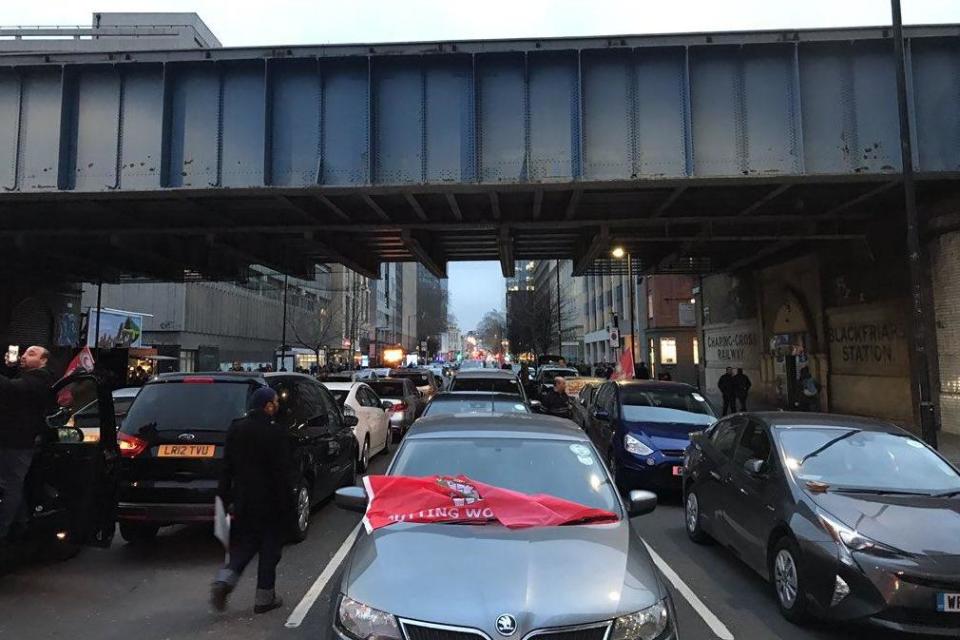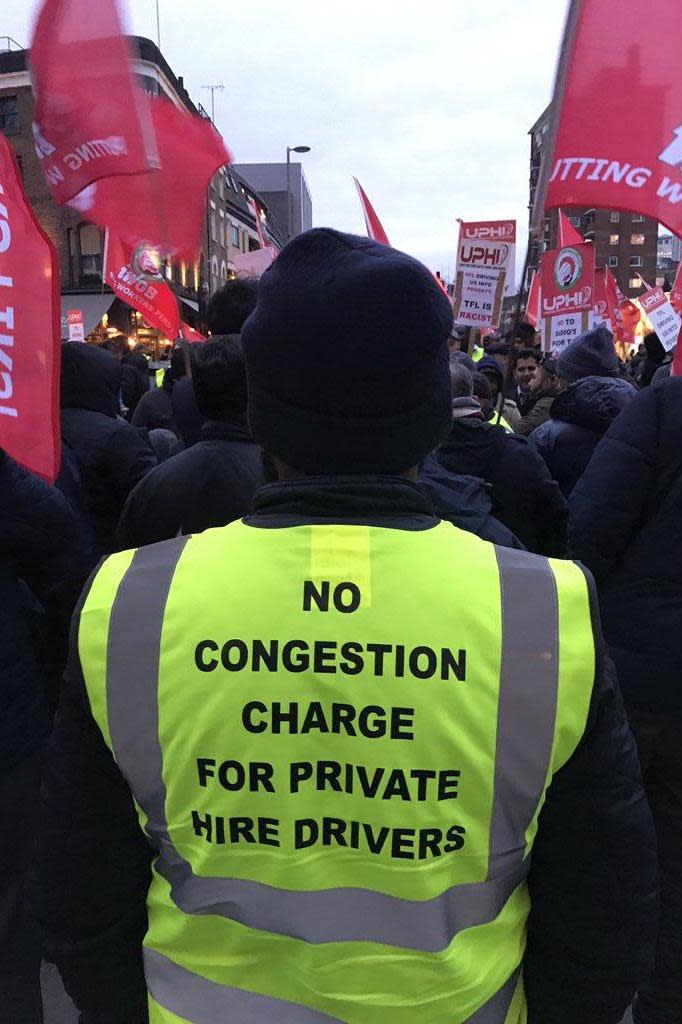Tottenham Court Road black cab protest: Cabbies block road over planned ban on cars, lorries and taxis
Black cab drivers have blocked Tottenham Court Road in protest over plans to restrict daytime access to the route.
On Monday, taxis parked along the road as drivers began a week-long demonstration called by the Independent Taxi Alliance (ITA) against the proposals.
Black cabs are set to protest from 4pm every day this week.
It came as minicab drivers staged a protest on Blackfriars Road against changes to the congestion charge in London.
Black cab protest in Tottenham Court Road. pic.twitter.com/UWunFaMQBU
— Julia 🇪🇺 (@owlcwtch)
Only buses and bikes will be allowed on Tottenham Court Road between 8am and 7pm, Monday to Saturday, when it is converted from one-way to two-way traffic from March.
Camden Council says the changes will improve road safety and air quality and lead to a change in fortunes for an “unloved” street. Drivers who breach the restrictions face a £130 fine.
But the taxi industry fears the move will worsen congestion and increase pollution in surrounding areas.
It has also argued that taxis and buses should be afforded the same access in the capital as they are both "publicly hired".
Tottenham Court Road #London clogged this evening due to a taxi protest against the forthcoming peak time road restrictions #taxi #blackcab #BlueMonday pic.twitter.com/a8Lgg6gIHo
— JP Osborn (@JPOz84)
In a statement today, the ITA called on the council to lift the restriction on cabs.
It said "the local authority could reasonably conclude that taxi access to bus lanes is liable to enhance the efficiency of the London road transport system".
The United Cabbies group tweeted: "Both Taxis and Buses are publicly hired and as the posters say Where buses go, We go."
Meanwhile minicab drivers were staging another protest against a congestion charge they claim will cut their take-home pay by up to 25 per cent.

The demonstration in central London on Monday has been called by the Independent Workers Union of Great Britain (IWGB), which claims the charge is a "tax on the poor" and will do little to reduce congestion in the capital.
The daily charge of £11.50 will have to be paid by private hire drivers, such as those working for Uber, from April.
Roads outside Transport for London's (TfL) offices were blocked by a protest earlier this month, which the union has vowed to repeat every Monday.

Spokesman Yaseen Aslam said: "We desperately need effective solutions to congestion and air pollution, but this policy is nothing of the sort.
"All the Mayor's plans will do is drive minicab drivers further into poverty, leaving them unable to feed their families and struggling to put a roof over their heads.
"Hundreds of drivers are coming out today to stand united against this unjust tax on the poor and we will keep on coming back until we are heard."
Alex Williams, TfL's director of city planning, said: "Bold action is required to tackle London's public health crisis. More than 9,000 deaths are linked to air quality every year.
"The private hire trade, along with all road users, have a central role in reducing the filthy fumes circulating in our city.
"The changes to the congestion charge will contribute to fewer vehicles driving where pollution is most concentrated while ensuring the cleanest minicabs, or those that are wheelchair accessible, continue to enter the zone without paying a charge.
"The changes to the congestion charge and the introduction of the Ultra Low Emission Zone in April will significantly benefit the health of all Londoners, including drivers."

 Yahoo News
Yahoo News 